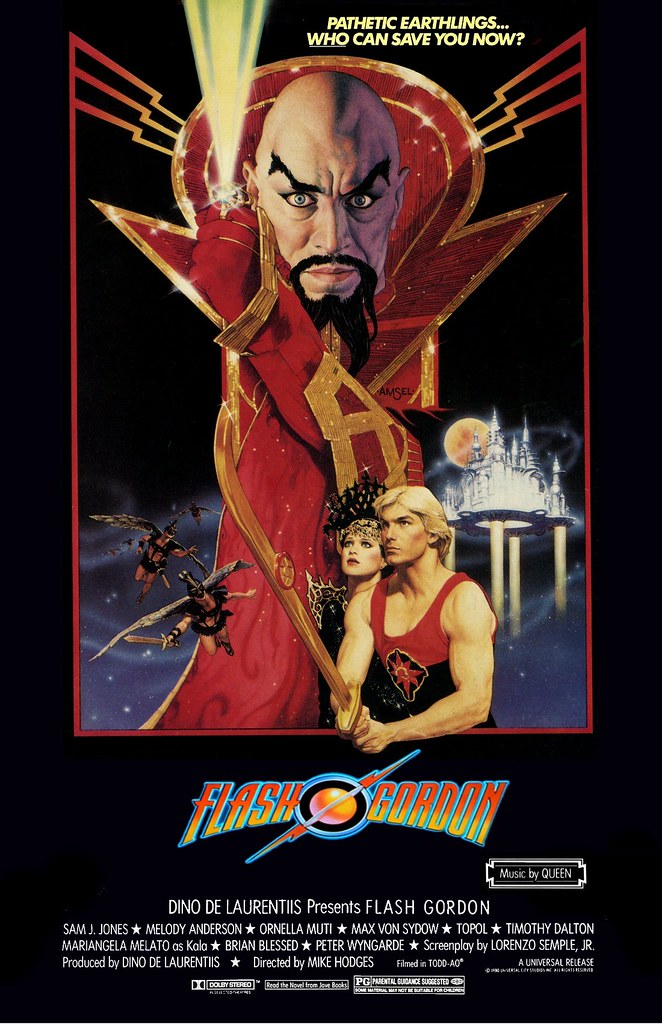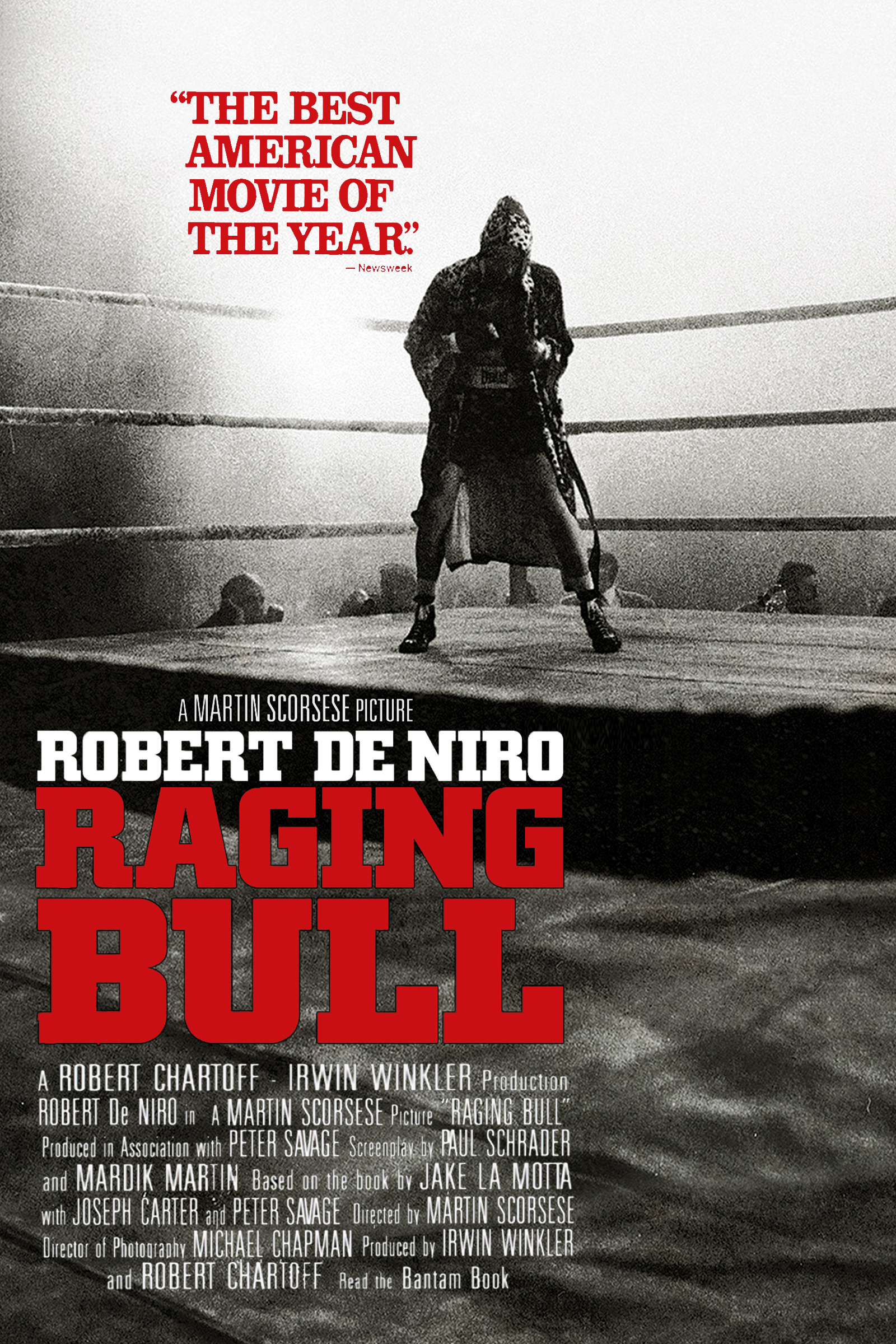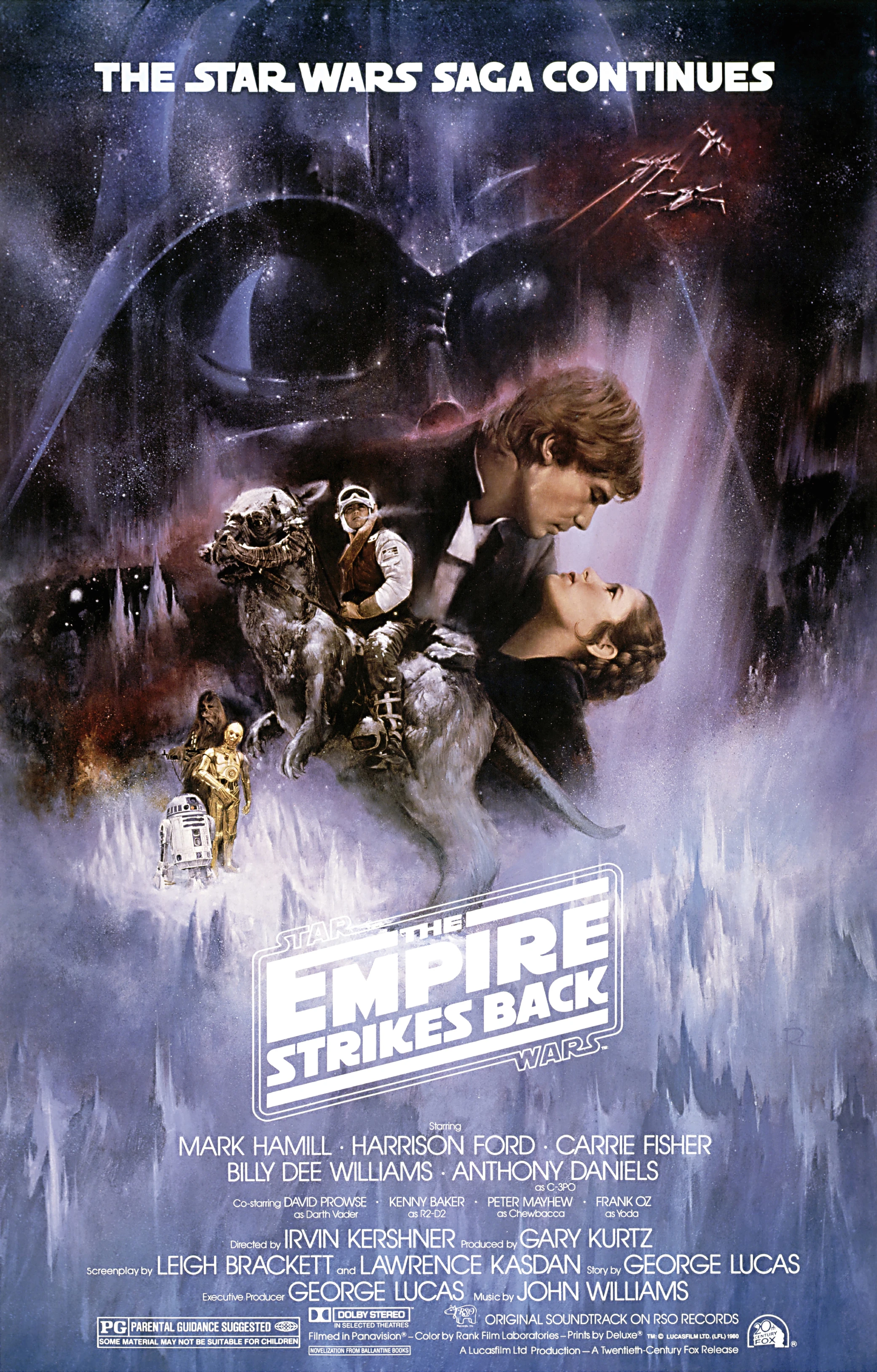
Billionaire writer/director George Lucas only created Star Wars because he couldn't manage to secure the rights to Flash Gordon -- which is the story that he really wanted to bring to the big screen. Three years after Episode IV's staggering success made interstellar adventures the thing to do -- and the same year that Star Wars' first sequel turned Lucas' standalone tale into a saga -- Flash finally made it to the silver screen. 35 years later, the circle was completed when Swedish actor Max von Sydow, who portrays Flash's main villain, Ming the Merciless, appeared in a small role in the seventh Star Wars feature, The Force Awakens.
2. Raging Bull

Interestingly enough, Raging Bull, though nominated, failed to land the Oscar for Best Picture at the 53rd annual Academy Awards back in 1981. Though filmed in 1979, the movie is black and white. While odd for a film of its era, the colorless look served to bestow a certain timelessness on the movie.
The film is an adaptation of 1940s middleweight titleholder Jake "The Bronx Bull" LaMotta's autobiography, Raging Bull: My Story. LaMotta is a bully in and out of the ring and both his career and personal relationships suffer due to his penchant for burning bridges. The film covers LaMotta's participation in matches fixed by the Mafia, as well as his long rivalry with legendary world champion Sugar Ray Robinson -- the two fought six times (LaMotta only won one of the bouts).
It is Jake's story, but his brother and manager Giuseppe "Joey" LaMotta steals the show. Joey, himself a former boxer, is involved in the best fight of the movie -- and its nowhere near a ring. When he notices local Mob associate, Salvy Batts, flirting with Jake's wife, Vikki, at the Copacabana nightclub, he kicks off in his ass from the table to a car parked out front.
1. The Empire Strikes Back

The sequel that's far superior to the groundbreaking, revolutionary, blockbuster original. The adventure story that dared to combine substance and integrity with incomparable style. The film that had the gall to let you hear one of it's heroes scream in agony. And to let another of it's heroes fail. And go toe-to-toe with evil and not only lose decisively but to run away. Where an ally reveals himself to be a traitor, but not for reasons as cliche' or superficial as the promise of riches. Where a puppet looked more realistic, had more personality and remains more beloved than any computer-generated character even 35 years later, including The Lord of the Rings' Gollum. Where not one, but two of the hero's mentors display dubious morals -- at best. This is also the film in which the villain takes center stage and gets revenge. It's also the film that visited the most locations in space (the ice planet, the swamp planet, the cloud city, the asteroid and a Super Star Destroyer). It has textured, dirty, used, so real-looking-you-swear-you-could-reach-out-and-touch-them spacecraft. It has science (sort of) and sorcery, existentialism and non-cheesy romance. The Empire Strike Back's Special Edition even contains the least drastic changes of the trilogy (George Lucas' so-called "improvements" to the films made 20 years after Star Wars' debut), though the Emperor's appearance was thankfully boosted to the caliber of the rest of the visuals. Empire proves that when a film is great, without qualification, it's alright to have a tragic ending. And if you decide to make a sequel, people will show up in droves because they don't just want to know, they want to see, what happens next.
Whether Lucas recognized his limitations or simply found that he was too busy as a newly-independent producer, passing the respective writing and directing reins over to Lawrence Kasdan and his old film school professor, Irvin Kershner, was his wisest decision since bringing his saga to the screen in the first place. Like The Winter Soldier 34 years later, Empire is completely different from its predecessor. The emphasis was re-focused onto character while doubling up on the visuals and excitement. Everything was honed to perfection.
Darth Vader was never better (the same holds true for Boba Fett). He no longer boasts or shouts angrily as he did in Star Wars. His short temper has been replaced by the imperturbable, matter-of-fact malice witnessed in one too-brief scene in Star Wars (where he calmly, telekinetically strangles one of his cohorts at a meeting). He's no longer a caricature with distinctive heavy breathing, he's a so-hardened-he's-irredeemable, barely-human warrior who's seen it all and lost the capacity to be moved or impressed. He's the template for The Terminator's T-800 and No Country for Old Men's Anton Chigurh. He's so villainous that he murders his own officers for failing, severs his only son's hand and casually plots to overthrow and murder his mentor. This film reveals the true nature of the galaxy's power structure -- Vader allows the Emperor to sit on the imperial throne -- for now -- but he's really the one calling the shots (a la Dick Cheney or Tony Soprano when Uncle Junior was the New Jersey don). Even his helmet is shinier. This is the king of bad guys at his finest.
The "space opera" takes cues from no less than Shakespeare and Greek tragedy, with a touch of Hamlet and Oedipus Rex. Life was hard for Luke in Star Wars (he was an orphan who found the corpses of his murdered aunt and uncle, watched his mentor die and lost a childhood friend on a suicide mission), but things get worse a mere three years later and he does not make it out in one piece. While he overcame his self-doubts in Star Wars, even more of his personal flaws are revealed here and the villain's restraint and ulterior motives are the only reasons that they don't become fatal. Both Yoda and Kenobi use Luke in order to satisfy their desire for revenge. They conceal from him the true nature of the suicide mission for which they are preparing him -- to unwittingly murder his own father. It's worth noting that both chose to live in hiding for decades instead of undertaking said mission themselves. How's that for complexity?
The distinctive score debuted in Star Wars is enhanced, most notably with the addition of the "Imperial March", which netted composer John Williams both a Golden Globe for best soundtrack and a Grammy.
Empire is one of the greatest films of any genre ever made and it's the Michael Jordan of adventure and fantasy films. It's much better than anyone could have ever expected or imagined it to be. Critics that likened Guardians of the Galaxy to Star Wars films could not have been referring to this one. They must have had Attack of the Clones in mind. The Empire Strikes Back is so good that it's not merely the best fantasy film. It should be referred to as the fantasy film.
Originally Posted 12/17/19

No comments:
Post a Comment